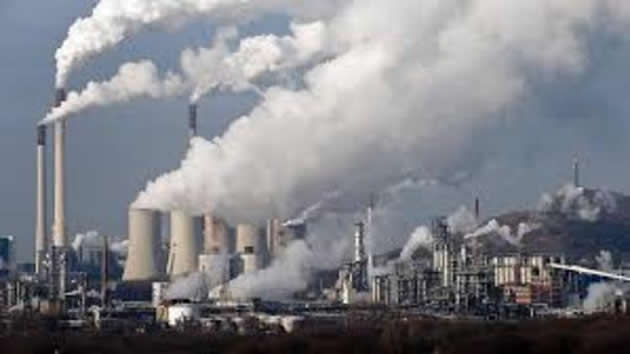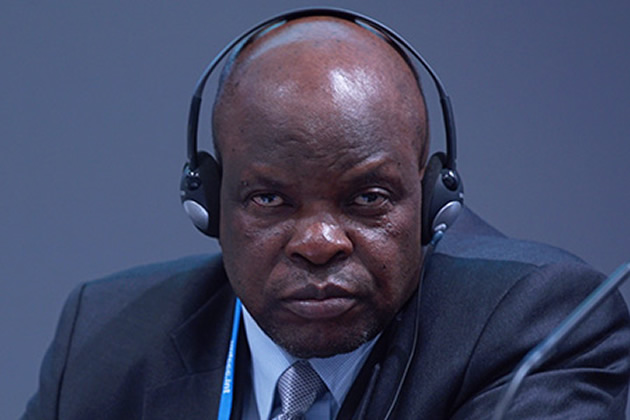Time for national discourse on climate change adaptation

 Bishow Parajuli Correspondent
Bishow Parajuli Correspondent
Last week the United Nations Development Programme and the Government represented by the Chief Secretary to the President and Cabinet, Dr Misheck Sibanda, jointly launched the global 2015 Human Development Report.
The report is particularly timely, following shortly after last September’s UN Sustainable Development Summit, where the new 17 Sustainable Development Goals were adopted.
The 2015 Human Development Report gives a significant recognition to Zimbabwe’s human development gains since 2009. Zimbabwe gained the most in the Human Development Index ranking in Sub-Saharan Africa since 2009, moving upward in the ranking by 12 places. There are several underlying factors behind this achievement:
First, on health, the report notes that life expectancy increased from 49,6 years in 2010 to 57,.5 years in 2014, reduction in HIV prevalence from 28,4 percent in 2000 to 14,3 percent in 2014. Most recent reports indicate that this has come down further to 13,8 percent in 2015; and reduction in maternal mortality by one-third from 960 per 100 000 live births in 2009 to 614 in 2014.
Second, on education, Zimbabwe can boast of a literacy rate of 99,6 percent. This is an exceptional achievement. On the income side, gross national income per capita (2011 PPP$) expanded from $1 442 to $1 615 during the same period.
And, fourthly, on gender equality, gender parity at primary and secondary schools and women parliamentarians accounting for 35 percent, higher than the global 22 percent.
These are good news that will compel us to do more and better to turn-around the economy with central focus on generating equitable and sustainable growth that will make a positive dent to generate employment and reduce the high level of poverty.
The other major factor that we need to address is the toll of climate change and erratic weather conditions on the farming households. Farming households are the backbone of the economy.
As such, cognisant of the effects of climate change, the Government and United Nations seized opportunity to launch the production of a national human development report with focus on climate change adaption in 2016.
Zimbabwe, like all countries, must intensify its action to mitigate the effects of climate change through enhancing water and soil management, scaling up of climate smart agriculture and clean sources of energy such as hydro, solar and biogas. Without adaptation, Zimbabwe’s rain-dependent agricultural yield could drop by 50 percent, affecting millions of smallholder farmers, 70 percent of whom are women.
There are several compelling reasons that require us to prepare with a sense of urgency to adapt to climate change in order to preserve gains made thus far and achieve consistent and sustainable human development trajectory. Chief among the many reasons include:
First, environmental scientists and economists are increasingly appreciating that the impacts of global warming are likely to be felt earlier than expected. The poorest developing countries will be hit earliest and hardest by climate change, even though they have contributed little to causing the problem. Unless we implement rapid climate informed development programmes, a recent World Bank report shows that climate change is an acute threat that could push more than 100 million people back into poverty over the next 15 years.
Second, it has been reported that agricultural production, including access to food, in many countries and regions in Africa is projected to be severely compromised by climate variability and change. According to some estimates in some countries in Africa, yields from rain-fed agriculture could be reduced by up to 50 percent by 2020. Some studies project that 75 to 250 million people in Africa will be exposed to increased “water stress due to climate change” by 2020.
In a nutshell, prolonged droughts; increased severity of storms and flooding; longer and more severe heat waves; water shortages; decreased grain yields; climate-induced spreading ranges of pests and diseases; lost and contaminated groundwater and deteriorated freshwater lakes – one or more of these impacts are expected to affect most of the world’s poorest countries sooner than once believed.
As a result, regions such as Southern Africa even small amounts of dry-spell will lead to declines in agricultural yield. The World Health Organisation already estimates that 150 000 deaths per year are caused by the global warming, largely due to diarrhoea, malaria and malnutrition.
Some analysts predict that in addition to the direct environmental impacts, social strains caused by increased resource scarcity may lead to greater conflict, with the poor again being the most likely victims.
This year alone due to low performance of the 2014-2015 agricultural season and the 2015-2016 worst El Nino-induced drought, 28 million people in the Southern Africa region will require humanitarian assistance, of whom 10 percent (2,8 million) are rural Zimbabweans.
The good news is that generally effective remedy to climate change is surprisingly affordable – if evidence- based decisive action is taken sooner rather than later.
First, the low incomes of the most affected countries like Zimbabwe make it difficult to finance adaptation. As such, the developed countries will have to take the lead and bear most of the cost in funding both remediation and adaptation, but developing countries will also need to play a significant role in limiting global warming to safeguard their own futures by building resiliency.
Second, deliberate and evidence- based policy adaptations can help make the livelihood assets of the poor more resilient to environmental stresses while providing other development benefits through addressing environmental deprivations including susceptibility to ecological stresses in poverty assessments and development programmes; implementing early warning systems to anticipate environmental emergencies and to prevent disasters; and establishing micro-insurance schemes or social protection provisions for farmers.
Third, ensuring availability of timely information about the environmental stresses and remedies to government, media and public can generate discourse and allow for an informed action to mitigate and reduce the risk of natural disasters.
I am optimistic that the proposed Zimbabwe climate change adaptation and human development report for 2016 will contribute immensely to inform our collective actions to address intertwined challenges of climate change and on the need to adopt a green economy to achieve food and a nutrition security, poverty reduction, decent and futuristic employment creation and eventually achieve the Sustainable Development Goals.
The launch for the production of Zimbabwe’s climate change adaptation and human development report in 2016 also comes hot on the heels of the historic Paris Agreement on climate change which was signed two weeks ago by 175 countries including Zimbabwe (represented by His Excellency President Mugabe) in New York.
Given the urgency to address the effects of climate change, we need to accelerate the speed and scale of our response. I have no doubt, under the leadership of the Government, the production of the 2016 Zimbabwe Climate Change Adaptation and Human Development Report will be instrumental in highlighting the scope of climate change in Zimbabwe; and to create the basis to foster collaboration and partnerships to build resilience and empower the people of Zimbabwe, particularly the rural and poor communities.
- Bishow Parajuli is the UN Resident Coordinator and UNDP Resident Representative in Zimbabwe










Comments